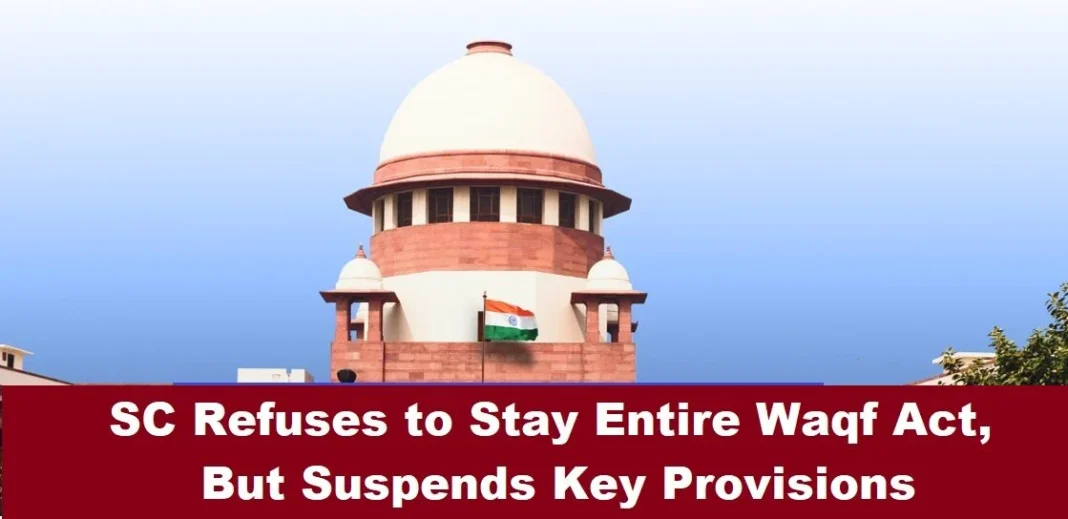Anwarulhaq Baig
New Delhi: In its interim order, the Supreme Court today refused to stay the complete Waqf Amendment Act but provided significant relief to the Muslim side by suspending key provisions. While rejecting the plea to halt the whole Act, the Court stayed controversial clauses such as the requirement that a person must have practiced Islam for at least five years before creating a Waqf, arguing that without a proper mechanism to verify this, the provision could lead to arbitrary decisions. The Court, however, observed that the rule itself was not inherently unreasonable, as it was meant to prevent misuse by individuals who might temporarily convert to Islam in order to take advantage of the protection offered by the Act.
The bench, led by Chief Justice B.R. Gavai and Justice A.G. Masih, made it clear that the challenge was directed only at specific provisions and that “no case was made to stay the entire statute,” adding that “the prayer for stay of the impugned Act is, therefore, rejected.” The Court further explained that to protect the interests of all parties and maintain balance during the pending litigation, it was issuing these directions.
The Court also stayed provisions that allowed government officers to derecognize Waqf properties during disputes over encroachment, declaring that permitting a Collector or other officials to decide such matters violates the separation of powers and undermines citizens’ rights. It directed that until the title of a Waqf property is finally decided by a Tribunal or the High Court, neither the property’s status nor the revenue records should be altered, and no third-party rights should be created. Furthermore, while allowing non-Muslim members to be part of the Waqf Boards, the Court imposed strict limits — non-Muslim members cannot exceed four in the Central Waqf Council and three in the State Boards — and emphasized that ex officio members should preferably be Muslims, preserving the religious character of the boards.
At the same time, the Court chose not to interfere with other contentious provisions, including the abolition of ‘waqf-by-user’, the bar on creating waqfs in Scheduled Areas and protected monuments, the requirement that only Muslims can create waqfs, and the application of the Limitation Act to the Waqf framework.

